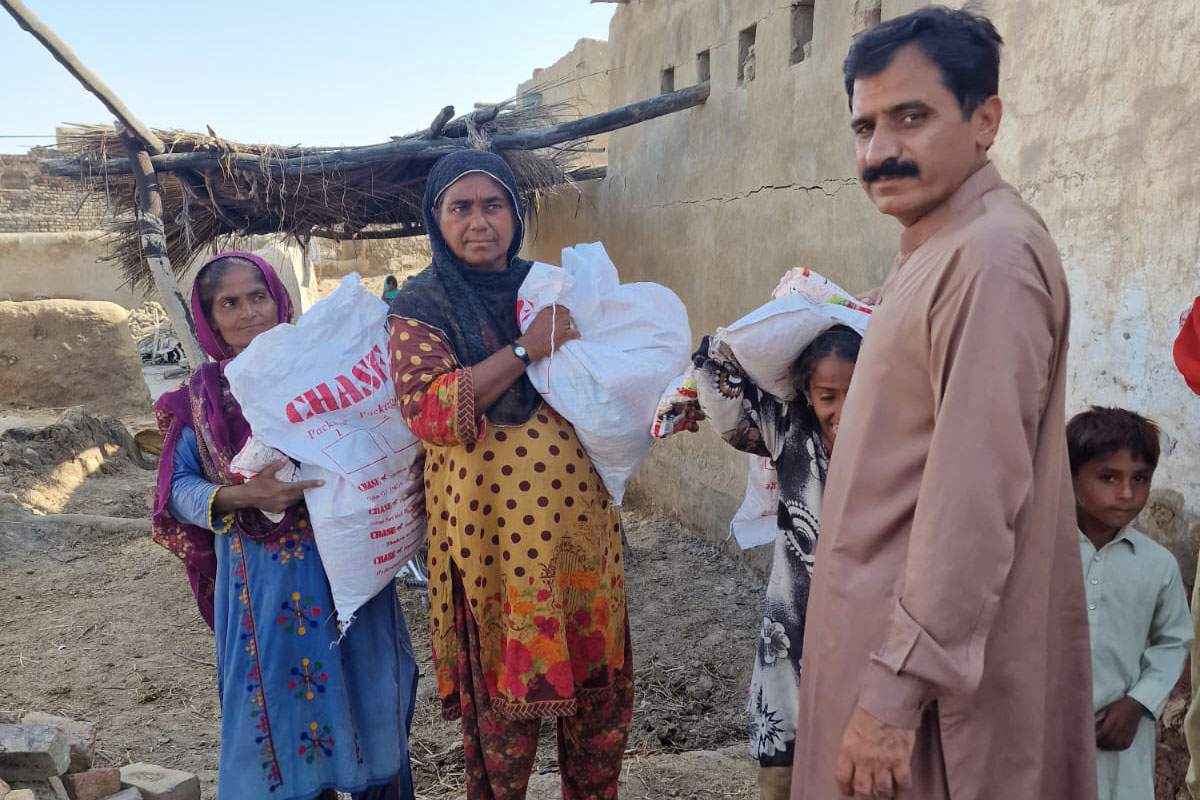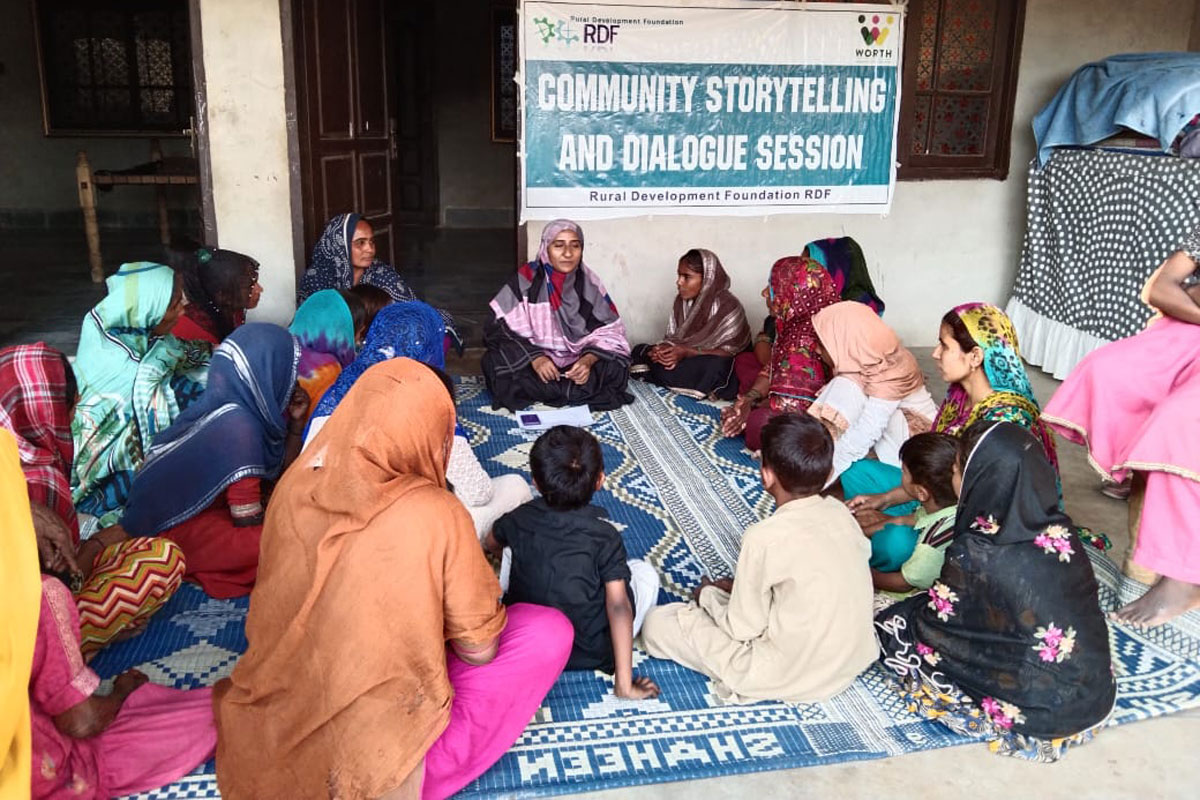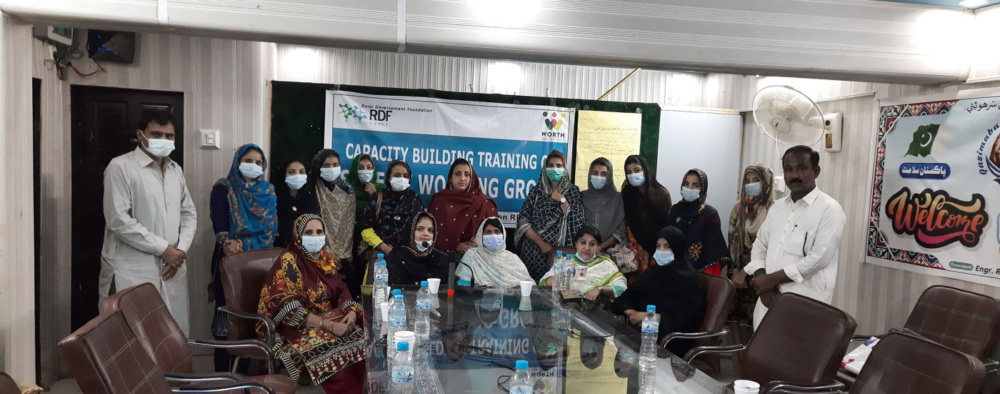
Gender justice
Gender justice, Youth power
Pakistan’s Sindh and Balochistan provinces were the worst hit areas after torrential monsoon rains resulted in catastrophic floods that left a third of the country submerged in water. The heavy rains, which scientists say were likely caused in part by climate change, have affected roughly 33 million people, including approximately 16 million children. Local communities in this South Asian nation are in dire need of emergency assistance.
RDF, a youth-led and women-led organization based in Sindh province, has been working to raise awareness among women and girls about climate change adaptation and resilience. The organization has also been mobilizing local women to participate in climate change initiatives and policy discussions.
In response to the current crisis, and upon realizing the disproportionate effect of the floods on women and children, the organization has distributed menstrual hygiene products to girls to manage their reproductive health needs during the crisis. RDF has also donated tents to house affected families.
[image_caption caption=”Rural Development Foundation distributing food items to families affected by floods in Jamshoro district. © Rural Development Foundation” float=””]

[/image_caption]
RDF Programs Manager Fazul Chandio said the organization is also helping to provide an emergency medical response and surveillance on emerging flood-related illnesses in Sindh province.
“We have managed to supply tents to provide shelter to affected women and children, and sanitary wear for girls for their reproductive health,” he said. “We are also working with hospitals and other medical groups to provide medical emergency support to reduce effects of floods and manage diseases that often come with floods.”
Women and girls are among the most vulnerable groups during natural disasters and other emergencies. Their sexual and reproductive rights are usually the least prioritized as humanitarian efforts often focus on life-threatening situations.
Overlooking the reproductive health needs of women and girls in disaster preparedness and planning can often be attributed to their exclusion from policy formulation and decision-making processes.
RDF has been raising awareness of climate change and its effects on women and girls, including by empowering them to advocate for gender-sensitive policies.
The organization was not spared from the recent floods. Its offices were flooded by the raging waters, and its staff sought refuge in high-lying areas where they are able to continue with their humanitarian work.
“Our offices were also impacted and we had to relocate to a smaller place so we can continue with our work,” Fazul said. “The flexible funding from [the Spark Fund] helped us to cover some relocation costs and be able to provide emergency response to the affected communities.”
Fazul cited mobile network challenges as a hindrance in accessing affected areas and coordinating emergency relief assistance to affected women and children. He said the signal towers were destroyed by the floods and roads became impassable, creating difficulties in reaching out to affected communities to provide supplies.
He added that obtaining government permission has been a major challenge hindering civil society participation in relief activities.
[image_caption caption=”A community storytelling and dialogue session. © Rural Development Foundation” float=””]

[/image_caption]
Around the world, climate change refugees are growing in number as developing nations grapple with the adverse impacts of climate change, which usually has a disproportionate effect on women and children. Over the past decade, millions of people have been forced to move from their places of origin due to an increase in climate change related challenges.
Donate now to help local organizations provide emergency support to children in Pakistan.
RDF is a local partner in the Spark Fund, a partnership between GFC and the Avast Foundation that provides youth-led and youth-focused groups with financial support and capacity development. Earlier this year, a regional youth panel in South Asia designed and led the grantmaking process in this region, selecting 13 organizations in Bangladesh, India, and Pakistan to receive Spark Fund grants.
Header photo: A capacity development workshop. © Rural Development Foundation
